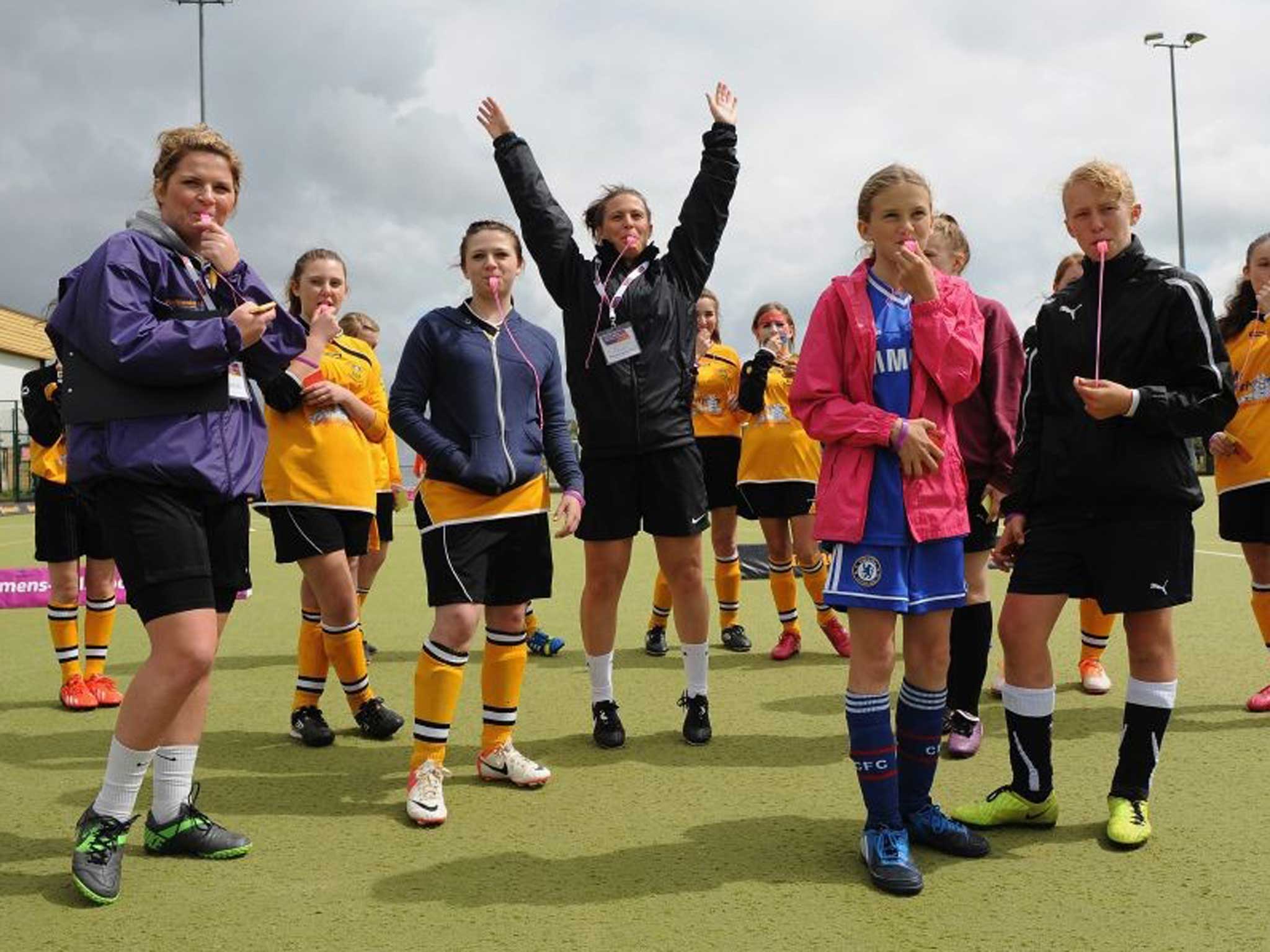Girls heed the message: don't get thin, get fit
Most now value health above skinniness, but those at secondary school admit they just don't get enough exercise

Your support helps us to tell the story
From reproductive rights to climate change to Big Tech, The Independent is on the ground when the story is developing. Whether it's investigating the financials of Elon Musk's pro-Trump PAC or producing our latest documentary, 'The A Word', which shines a light on the American women fighting for reproductive rights, we know how important it is to parse out the facts from the messaging.
At such a critical moment in US history, we need reporters on the ground. Your donation allows us to keep sending journalists to speak to both sides of the story.
The Independent is trusted by Americans across the entire political spectrum. And unlike many other quality news outlets, we choose not to lock Americans out of our reporting and analysis with paywalls. We believe quality journalism should be available to everyone, paid for by those who can afford it.
Your support makes all the difference.Campaigns encouraging girls to put being healthy above being thin appear to be working, as a new study shows more than eight out of 10 girls put fitness first.
Research for the Active Inspiration campaign found that 82 per cent of school-age girls agree with the phrase "being fit and having a body in proportion is more important than being thin".
This is not necessarily translating into more energetic lifestyles, however. Almost two-thirds of 16-year-old girls still feel they are not active enough, according to a poll of more than 2,000 young people.
The problem gets worse as girls enter secondary school. Among eight-year-old girls, the numbers worried about inactivity are far lower, with only 38 per cent saying they are not as active as they would like to be.
The key to getting young people exercising seems to lie with the family. Among children whose parents never do any moderate exercise, 51 per cent say that leading an active life is not important to them – double the number when compared with children who do have active parents.
The Independent on Sunday has for the past year been campaigning to improve coverage of women's sport and to encourage more girls to become active.
Baroness (Sue) Campbell, chair of the Youth Sport Trust, said the high numbers rating fitness over body size could be a sign of the trust's work encouraging active girls to be mentors to their peers in schools. "Instead of us lecturing girls about body image and sport, it's about girls recognising that being healthy is more important than being thin," Lady Campbell said. "We know that young women who are healthy and feel good about who they are do better in school. Young women who are anxious about body image do less well."
More than half of secondary-school girls say that they are put off sport and physical activity because of their experiences of school sport and PE.
The Active Inspiration campaign is a joint project from the Women's Sport and Fitness Foundation (WSFF) and Virgin Active that aims to encourage half a million young people to do more exercise, focusing first on girls.
Barbara Keeley MP, who co-chairs the All-Party Parliamentary Group on Women's Sport and Fitness, said: "Being active is crucial in the development of young people. It gives them the chance to interact with their peers whilst promoting a productive, healthy lifestyle.
"From schools to parks to gyms, we need to do more to promote the benefits of regular sport and physical activity. Active children become active adults – we need to help young people, and in particular girls, overcome the current barriers to leading an active life so that they can enjoy a healthier future."
A pilot project for improving PE for girls is being run at Handsworth Grange Community Sports College in Sheffield by the Active Inspiration campaign. All girls in Year 7 are helping plan their own ideal PE lessons in an attempt to work out what classes might encourage more to get active.
Ruth Holdaway, chief executive of the Women's Sport and Fitness Foundation, said: "Our research and insight tells us that while girls do want to be active, they have very different needs to boys.
"Understanding what girls want from their physical and sporting experiences will help us enormously in designing a programme that will engage them and keep them interested for many years to come."
Edward Timpson MP, the minister responsible for school PE and Sport, said: "We know that those who really enjoy PE and sport are more likely to feel positive and happy, and active pupils tend to do better in their academic studies. So, it's exciting to see more schools developing new innovative approaches to promote physical activity for their children."
Case study: 'My parents encourage me to try different sports'
Holly Bloom, 12, lives in Handsworth, South Yorkshire, with her parents, Karen and Mark, and her brother, Luke, eight
"Some of the older girls feel doing sport would make them all sweaty and are worried how they look. I do football, netball and rounders. My parents encourage me. I'll come home and say, 'I might like to try this sport' and they'll say, 'That sounds good, try it.' We go camping and take a football or cricket set; we often do stuff like that."
Her mother, Karen, said: "My job is to make sure my children do whatever sport they want."
Join our commenting forum
Join thought-provoking conversations, follow other Independent readers and see their replies
Comments